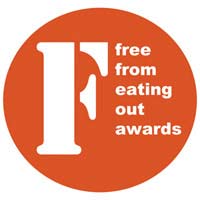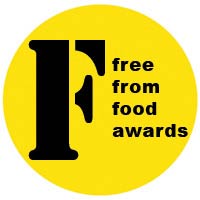Not yet diagnosed?
Do not eliminate gluten from your diet until you have a proper diagnosis. Not only will a diagnosis of coeliac (celiac) disease (or dermatitis herpetiformis) get you prescriptions for gluten-free foods, but if you do not eat gluten, the damage to your intestines will slowly heal, and it may be difficult to get a diagnosis at all.
Newly diagnosed?
Start here:
- join Coeliac UK or any equivalent in your own country. If you’re in the UK, CUK will send you a copy of the ‘bible’ – a list of which foods sold in the UK are free from gluten. This is broken down by kinds of food, and by supermarket. There are monthly updates to this, as things change all the time – be sure to stay up to date. They will also send you regular magazines containing articles, recipes and news.
- find a local branch of Coeliac UK or equivalent. These meet a few times a year, often arranging events around gluten free foods, such as cooking demonstrations or food-fairs. This will give you a chance to talk to others in the same situation and swap ideas.
- contact the major manufacturers of gluten free food. They are very keen for you to try their food and will probably send you samples.
- be alert to the danger of cross-contamination
- Set aside a cupboard or a shelf for your own special foods, to avoid getting crumbs from gluten-containing foods into your foods. We have a separate breadbox as well.
- You will also need a separate, and clearly marked, tub of butter/margarine and of marmite/jam etc, to avoid crumbs from someone else’s toast getting onto your toast.
- Some people buy a second toaster, but you could toast under the grill (making sure there are no crumbs of gluten-containing foods) or buy some toasterbags.
- be prepared for shopping to take a long time to start with, and always be prepared to take your own foodstuff with you. Some people keep emergency supplies of non-perishable food in the car; others keep stuff in their desk, just in case.
- visit the Message Board – it can be a lifeline, and a way to get those niggling questions answered.
- be prepared to spend a lot of time explaining to other people why you can’t eat various things. This can get boring, but the more people you explain the gluten-free diet to, the more people will understand, and the better known the condition will become – and the easier it will be for everybody else.
Just got a diagnosis? Wondering how you’ll manage?
Living without gluten needn’t be that much of a problem, whether you’ve been diagnosed as coeliac (celiac) or need a diet with no gluten for some other reason. There are lots of specialist food suppliers now, and the quality of gluten free food is improving all the time. However, getting used to it is difficult, and shopping will take extra time until you’ve learnt what you like, and what to avoid. Other people can make it difficult too, whether these are family members who can’t or won’t understand the diagnosis, catering at school or work, or restaurant staff who simply haven’t come across it before, and perhaps think you are just a faddy eater.
And simply having to explain – every single time – what you can’t eat, and what the effects will be of getting it wrong can be very boring. Or embarrassing!

